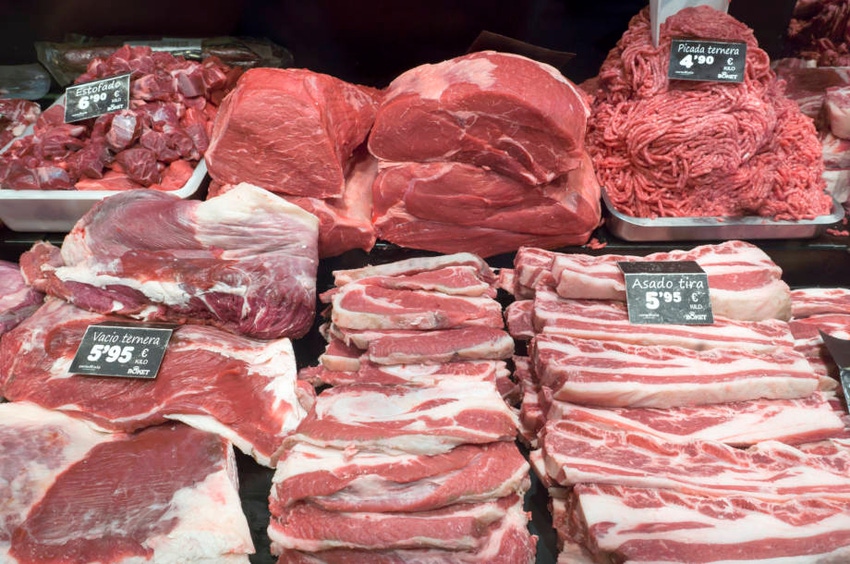U.S. wins meat WTO dispute against Indonesia
Ruling expected to open up significant new export opportunities for U.S. beef and poultry industries in Indonesian market.

The World Trade Organization (WTO) ruled Thursday in favor of the U.S. and New Zealand and confirmed that Indonesia’s import licensing regimes for meat, poultry and other horticultural and animal products are inconsistent with WTO rules.
The WTO report found that all 18 of Indonesia’s import measures challenged by the U.S. were inconsistent with WTO rules and obligations.
U.S. Trade Representative Robert Lighthizer called it a “resounding victory for the United States that should result in increased export opportunities for U.S. farmers and ranchers as well as Indonesian consumer access to high-quality U.S. agriculture products,” according to a press release from the Office of the USTR.
Since 2012, Indonesia has maintained unjustified and trade-restrictive licensing regimes for the importation of animals, animal products and horticultural products. The U.S. products that have been affected by these Indonesian regimes includes poultry, cattle, beef, other animal products, fruits, vegetables, flowers, dried fruits and vegetables and juices.
At the request of USTR, WTO established a panel to examine the U.S. compliant in 2015. In a report publicly released in December 2016, the panel in the dispute found that all of the challenged measures were inconsistent with the 1994 General Agreement on Tariffs & Trade (GATT) because they restrict or prohibit importation of animals, animal products and horticultural products. The WTO panel also found that Indonesia failed to demonstrate that any of the challenged measures were justified under GATT 1994.
In February 2017, Indonesia then appealed the panel’s findings. The latest report confirms the panel’s finding that each of the challenged measures is inconsistent with WTO rules.
North American Meat Institute president and chief executive officer Barry Carpenter said, “It was clear that Indonesia’s restrictive policies were in violation of WTO rules, and we are grateful that USTR pursued and succeeded in this case. As the fourth most populous country in the world, the Indonesian market is one with great potential for the meat and poultry industry.”
U.S. Meat Export Federation (USMEF) CEO Philip Seng said, “We are extremely pleased with the outcome of this case and wish to thank the Office of the U.S. Trade Representative for its effective presentation of the legal arguments against Indonesia’s import controls. The WTO ruling is confirmation of USTR’s decision to bring the case and supports the need for a strong and transparent dispute settlement system in the WTO.”
Seng said USMEF sees Indonesia as a very promising market for the future. Although it is the fourth most populous country in the world, with per capita beef consumption of only 3.4 kg, Indonesia has almost unlimited potential to become one of the world’s largest beef importing countries. “Today’s WTO report sets the stage for expansion of Indonesia’s beef market. We are excited about the opportunity to play a big part in its development by introducing U.S. beef to a much wider group of Indonesian customers.” Seng added.
Last year, U.S. beef and beef variety meats exports to Indonesia totaled 10,783 metric tons, valued at $39.4 million, making it the U.S.'s ninth-largest export market by volume and 15th-largest by value. Through September of this year, exports to Indonesia were 9,934 mt, valued at $36.6 million. This marked a 96% increase from the first nine months of 2016 in volume and a 78% increase in value.
Indonesia is currently the third-largest export market for U.S. beef hearts, following Mexico and Hong Kong.
Indonesia is an increasingly important export market for many U.S. agricultural products. In 2016, Indonesia was the ninth-largest export destination for overall U.S. agricultural products by value. The U.S. exported more than $2.6 billion in agricultural products to Indonesia and imported more than $2.8 billion in agricultural products from Indonesia. In 2016, exports of animal and horticultural products affected by Indonesia’s import licensing regimes totaled $170 million.
About the Author(s)
You May Also Like




.png?width=300&auto=webp&quality=80&disable=upscale)
